On World Theatre Day, we reignite the age-old debate: are actors from a stage background better equipped to be in front of the camera?
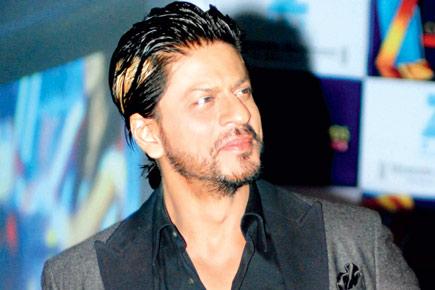
Shah Rukh Khan
In November 2012, Naseeruddin Shah stated that he was suffering from cinema fatigue. At that point of time, the veteran actor was contemplating a long break from films and was hoping to learn carpentry in order to keep his mind occupied.
ADVERTISEMENT
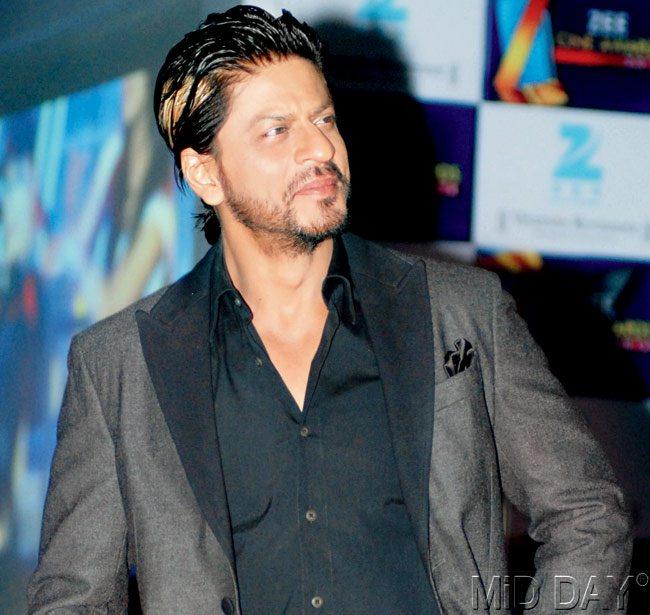
Shah Rukh Khan acted in plays and television before achieving stardom in films. Pic/Atul Kamble
However, he pointed out that he doesn't find theatre — his first love — tiresome. Even now, he seems to be doing a fine job of juggling films with plays, and this in turn makes him a rarity.
In the Hindi film industry, several actors have started out in theatre before turning to the silver screen. Instances include superstar Shah Rukh Khan, Manoj Bajpai, Irrfan, Nawazuddin Siddiqui, and Boman Irani. Among actresses, Kalki Koechlin, Nandita Das and Huma Qureshi are some names who have dabbled in theatre.
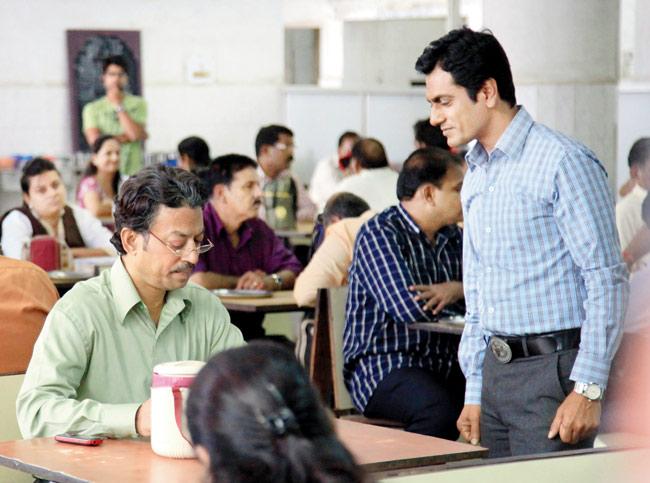
Irrfan and Nawazuddin Siddiqui (seen here in a still from The Lunchbox) began their acting journey at National School of Drama, New Delhi
On the occasion of World Theatre Day today, hitlist mulls over the question: do actors hailing from a theatre background have an edge over those who don’t? Also, is acting among those vocations where formal training is not a pre-requisite? The number of actors without theatre experience far exceeds those who have starred in stage productions. In such a scenario, how exactly does working in theatre help an actor/ actress perform better in front of the camera?
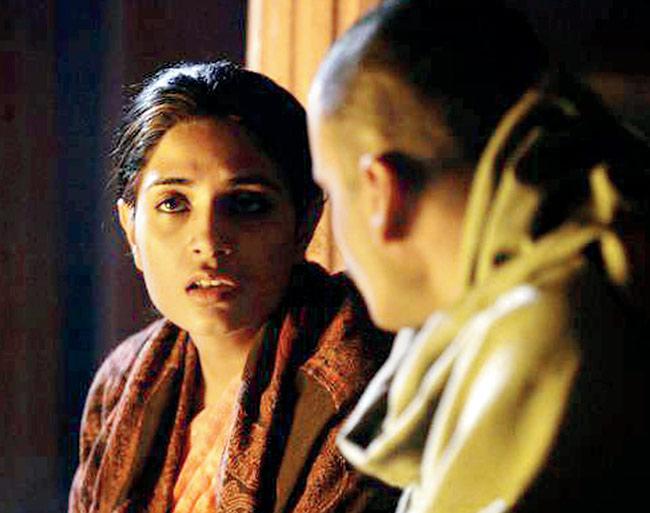
Richa Chadda (left) and Manoj Bajpai — seen here in a still from Gangs of Wasseypur 2 — started their careers by performing in plays
Lessons from theatre
Barry John has some answers. The Delhi-based theatre personality, whose protégés include SRK, and younger names such as Sushant Singh Rajput and Freida Pinto, feels that formal training in theatre has its share of advantages and disadvantages. “Theatre doesn’t offer an actor/actress all the training that is needed to perform in front of the camera. Then again, it gives an actor/actress more room to perform, whereas films are often technology/production-driven. It’s a well-known fact that theatre experience can serve as the foundation of an actor’s body of work. There’s no denying that theatre makes you a better actor.”

Nimrat Kaur was a theatre actress before she chose to star in films
One of the reasons for this is the fact that when an actor/actress is part of a play, he/she has to absorb the whole script. This is unlike films, where one can afford to not get it right at the first take. A film actor/actress doesn’t need rehearsals; you perform till you get the right shot, whereas theatre thrives on fine-tuning one’s acting skills and dialogue delivery during the rehearsals. In the early days of Indian cinema, legendary actors like Prithviraj Kapoor and Balraj Sahni made the most of these opportunities that theatre offered.
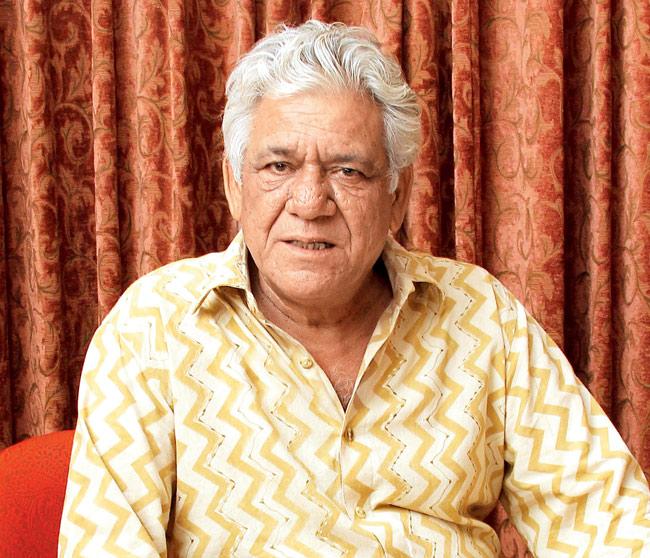
Similarly, in the mid-’70s, actor Om Puri made a humble beginning with the play, Zaildar by Kapoor Singh Ghuman. The National Award-winning actor then trained his sights on Bollywood as he went on to star in ‘arthouse cinema’ of the late ’70s and early ’80s. But the actor points out that theatre background is not a pre-requisite to excel in films. “I don’t think it’s necessary for an actor to do theatre in order to succeed in cinema. If you work in theatre, that’s great as it makes you versatile. But if you are not, you have to make sure you hone your acting skills. Or else you will end up repeating yourself and you won’t enjoy acting after a point,” he says.
Big screen v/s the stage
Interestingly though, actors seldom go back to theatre once they’ve established themselves in the film industry. ‘Lack of time’ is often the excuse cited. For instance, Nimrat Kaur (of The Lunchbox fame) explains why she doesn’t want to star in a play anytime soon. “Theatre requires utmost dedication and time. You have to be entirely involved. You can’t be half-hearted about it,” says the Mumbai-based actress.
Of course, there are some exceptions. After her debut film, Oye Lucky! Lucky Oye! (2008), had released, Richa Chadda toured across India and Pakistan , where she starred in several plays for nearly a year. She was then signed on by Anurag Kashyap for his film, Gangs of Wasseypur. The actress now says that she is not willing to do theatre anytime soon as she wishes to focus on her film career instead. Ask her if theatre lent her an advantage over her contemporaries, and she chooses to play it safe. “I don’t wish to compare myself with anyone because each person has his/her strengths and weaknesses. But yes, theatre teaches you different aspects of your craft — be it projection, light or movements. You are technically prepared to face the camera. What happens later though depends on the actor/actress and how he/she takes it forward.”
Director’s cut
Filmmakers often feel that actors with technical knowledge are assets unto themselves. Govind Nihalani, who made acclaimed films like Aakrosh (1980) and Ardh Satya (1983), had the reputation of working with actors from theatre background. He says, “Theatre breeds discipline and adds to your confidence. But if an actor has what it takes to perform, then he/she will make it big on the basis of their talent, irrespective of their background.”
Director Hansal Mehta finds the debate subjective. He says, “Theatre experience is not compulsory. A good actor is a good actor. There are many theatre personalities who didn’t click when they moved to cinema. You have to remember that we’re talking about two different mediums here.”
Om Puri cites the example of Akshay Kumar’s rise to stardom in order to drive home the point made by Mehta. “Akshay is an action star, who is also good at comedies. I don’t think he could have perfected his stunts in a play; nor can you expect him to star in a production of Hamlet. But it’s a fact that he’s a star of his own making,” says the celebrated actor.
 Subscribe today by clicking the link and stay updated with the latest news!" Click here!
Subscribe today by clicking the link and stay updated with the latest news!" Click here!






